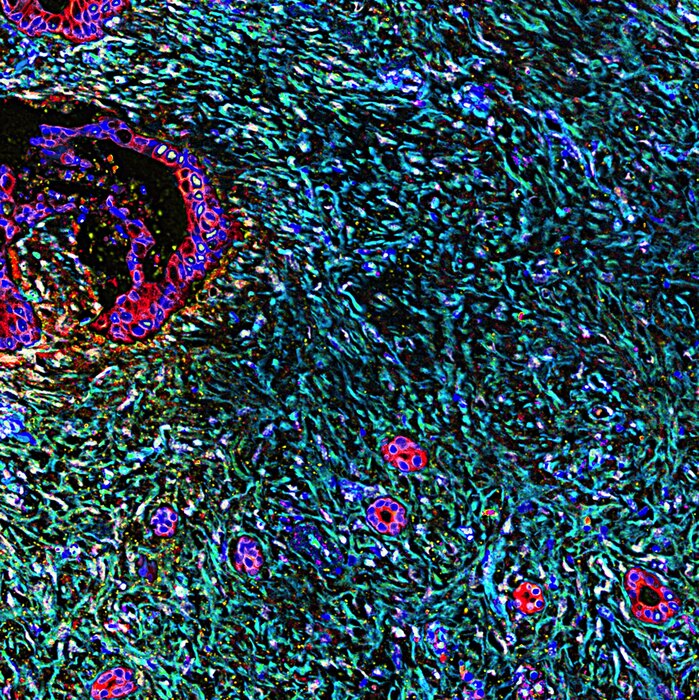The molecular mechanism that allows pancreatic cancer to proliferate despite the lack of nutrients has been discovered: its pharmacological inhibition could become an extremely effective weapon to counteract tumor growth.
This is demonstrated by the study published in the journal Signal Transduction and Targeted Therapy by an international research group coordinated by Carlo Maria Croce at the Ohio State University in which the Sapienza University of Rome, the University of Modena and Reggio Emilia and the Center for Aviano Oncology Reference.
The survival strategy of pancreatic cancer cells is based on a small molecule of non-coding RNA (microRNA) called miR-15a: normally expressed in the healthy pancreas, it is often lost during the early stages of tumor transformation.
miR-15a represents a sort of molecular brake that keeps levels of the Fra-2 protein, a transcription factor crucial for the tumor's response to stress, constantly low.
In the absence of miR-15a, tumor cells stressed by nutrient deficiency are free to express the transcription factor Fra-2 which, in a cascade, activates the transcription of genes fundamental for survival.
Among the target genes of Fra-2 is the growth factor receptor Igf1, responsible for the proliferative stimulus.
“The discovery of this mechanism increases our understanding of the disease and provides a useful rationale for setting up therapies", explains Gian Luca Rampioni Vinciguerra, first author of the study and researcher at the Department of Clinical and Molecular Medicine at Sapienza University. "In our models, pancreatic cancer in nutrient deficiency becomes dependent on the activation of the Igf-1 receptor and therefore extremely sensitive to its pharmacological inhibition, which becomes an extremely effective weapon to counteract tumor growth".
Reproduction reserved © Copyright ANSA

